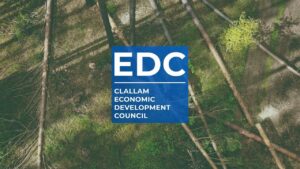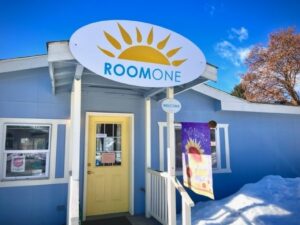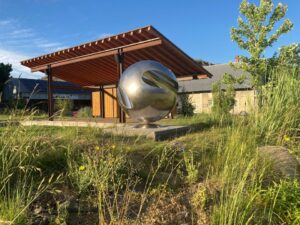Commerce partners with four rural communities to pilot unique twist on industry-led economic development strategy
First cohort in new program will test potential for developing innovation clusters to drive growth and jobs in rural Washington
Olympia, WA – Can small rural communities successfully mobilize public-private coalitions in target industries to create innovation clusters that will drive economic growth and jobs for the future? The Washington State Department of Commerce aims to find out with a new version of its Innovation Cluster Accelerator Program (ICAP) called ICAP Launch.
Innovation clusters are formalized, industry-led organizations working together to drive innovation, overcome industry-wide barriers, access new market opportunities and attract talent and capital. Clusters are often geographically-concentrated and include industry, entrepreneurs, academic partners, investors, and government agencies.
Established in 2022, Washington’s ICAP program was instrumental in launching nine innovation cluster organizations in industries such as clean energy technology, quantum computing, bioscience, and sustainable aviation and maritime.
With ICAP Launch, Commerce is partnering with four core teams of industry and community leaders, economic development organizations, research institutions and non-profit organizations to explore preparation and readiness to pursue an innovation cluster strategy in rural communities. In addition to $50,000 capacity-building grants awarded through a competitive process, each organization will participate in a year-long strategic guidance and technical assistance program to develop an early stage innovation cluster strategy for their targeted industries.
 Clallam County Economic Development Council, Clallam and Jefferson Counties. Based in Port Angeles, WA, this group is working on a Natural Resources Innovations Center (NRIC) seeking to transform the legacy forest products industry to maximize the value of natural resources-based products, including sustainably harvested wood for green building while minimizing waste. The NRIC will bring together businesses, who will identify industry needs, with organizations, including researchers at the Olympic Natural Resources Center of the University of Washington, the College of Forest Resources at Washington State University, the Department of Natural Resources and the United States Forest Service, to find and field test solutions for economic viability.
Clallam County Economic Development Council, Clallam and Jefferson Counties. Based in Port Angeles, WA, this group is working on a Natural Resources Innovations Center (NRIC) seeking to transform the legacy forest products industry to maximize the value of natural resources-based products, including sustainably harvested wood for green building while minimizing waste. The NRIC will bring together businesses, who will identify industry needs, with organizations, including researchers at the Olympic Natural Resources Center of the University of Washington, the College of Forest Resources at Washington State University, the Department of Natural Resources and the United States Forest Service, to find and field test solutions for economic viability.
Mid-Columbia Economic Development District, The Dalles, OR, Klickitat and Skamania Counties. This regional consortium is exploring oppo rtunities around the regional Uncrewed Aerial Systems/Vehicles (UAS/UAV) industry ecosystem. They are looking to leverage their network of established large enterprises, growing midsize companies and emerging start-ups to foster increased innovation, explore untapped markets, and develop the UAS/UAV sector in their region. Goals include fostering a thriving Gorge tech community, promoting and supporting member businesses, supporting STEM education, and optimizing the impact of this emerging cluster.
rtunities around the regional Uncrewed Aerial Systems/Vehicles (UAS/UAV) industry ecosystem. They are looking to leverage their network of established large enterprises, growing midsize companies and emerging start-ups to foster increased innovation, explore untapped markets, and develop the UAS/UAV sector in their region. Goals include fostering a thriving Gorge tech community, promoting and supporting member businesses, supporting STEM education, and optimizing the impact of this emerging cluster.
 Room One in partnership with Blue Sky Minds, Okanogan County. Working and living on the lands and waters of the Methow People, in Mazama, WA, this consortium seeks to support the growth of an equitable, sustainable and economically thriving food ecosystem for the Okanogan region. They will bring together farmers, ranchers, food producers, restaurants, food sellers, and the nonprofit community to develop a stronger localized food economy that will create jobs, increase wages and boost the demand for the local and regional foods. Additionally, increased food production will improve access to healthier, diverse, and culturally appropriate foods, through the food system, including schools and local food banks.
Room One in partnership with Blue Sky Minds, Okanogan County. Working and living on the lands and waters of the Methow People, in Mazama, WA, this consortium seeks to support the growth of an equitable, sustainable and economically thriving food ecosystem for the Okanogan region. They will bring together farmers, ranchers, food producers, restaurants, food sellers, and the nonprofit community to develop a stronger localized food economy that will create jobs, increase wages and boost the demand for the local and regional foods. Additionally, increased food production will improve access to healthier, diverse, and culturally appropriate foods, through the food system, including schools and local food banks.

TwispWorks is a dynamic hub for arts, innovative small business, and community projects, on the site.
TwispWorks, Okanogan County. Based in Twisp, WA, the TwispWorks consortium is focused on opportunities in the circular economy in the Methow Valley to support innovative businesses and new industries to help the area address the effects and causes of climate change on a local scale. The core team is comprised of local industry and nonprofit leaders, as well as higher education, local businesses, and thought leaders in the region. They envision an economy rooted in livability. The combination of cluster development and the historic 6.4-acre former USDA Forest Service campus will help the community start, build, and grow businesses and cultural programs to reach that vision.
These organizations will lead local industry ecosystem partners in learning and implementing strategies and techniques to drive collaborative action, begin building an innovation cluster strategy, and position their networks to pursue private and public investment.
“In the years since the pandemic, many rural communities have been left on the sidelines of an influx of federal and state funding for economic recovery and growth,” according to Commerce Director Mike Fong. “Many rural communities lack the capacity to mobilize their existing industry ecosystems to take advantage of these opportunities. We believe the innovation cluster model can help equip rural communities to rapidly respond to opportunities and challenges. With strong, focused public-private coalitions operating in a cluster framework, communities and regions are more successful at cultivating businesses and creating jobs needed to thrive.”
The department also expects the pilot will inform how the new ICAP Launch program can best support regional and rural economic development moving forward.
“We are excited for this program to help increase innovation and collaboration within our Uncrewed Aerial Systems industry,” said Jessica Metta, Executive Director, Mid-Columbia Economic Development District (MCEDD). ”The industry has been regionally significant since the 1990s and ICAP Launch will help us take it to the next level.”
“The Olympic Peninsula was developed through the forest product industry, and today our local industry members are committed to consistent process improvement,” said Colleen McAleer, Clallam EDC Executive Director. “Demand for housing stock requires innovative processes to improve environmental stewardship and lower the cost of construction. The Natural Resources Innovations Center (NRIC) will expand existing nascent sustainable practices and create new solutions for our future.”
At present, McAleer said, the processes identified have made it possible to bring together sustainably harvested wood for use in green building materials – the advanced cross laminated timber being engineered locally by the Composites Recycling Technology Center for the production of affordable housing – and the use of organic waste products for the production of Humisoil®, an advanced soil amendment that reduces methane emissions and adds nutrients and water to soil.
ICAP Launch is supported by a Planning Grant from the U.S. Department of Commerce Economic Development Administration (EDA). Successful innovation cluster programs around the world served as a blueprint for Washington’s innovation cluster development strategy, including Canada’s Superclusters Initiative and the Norwegian Innovation Clusters.
Get updates and follow the Innovation Cluster Accelerator at www.icapwashington.org.
###
